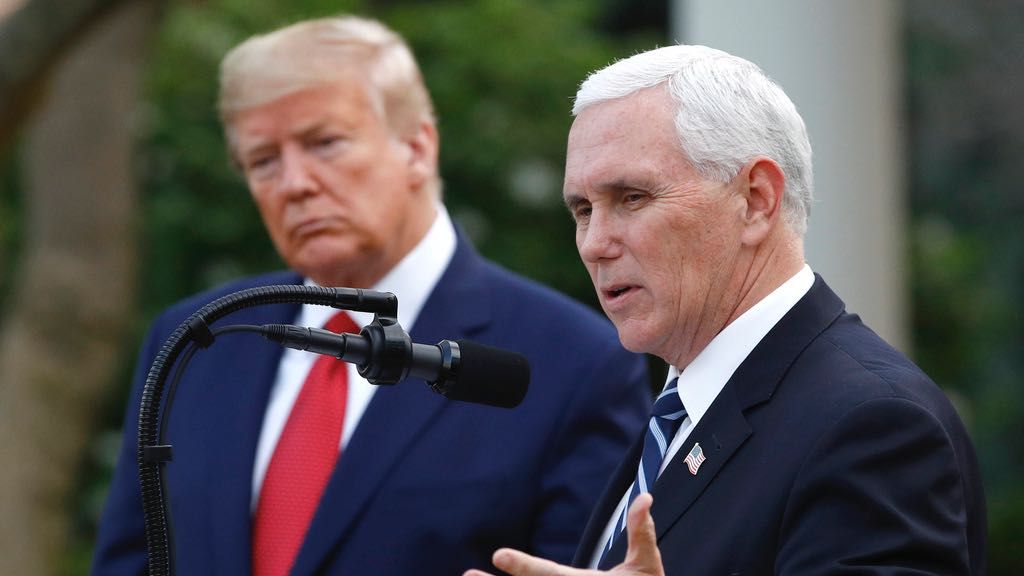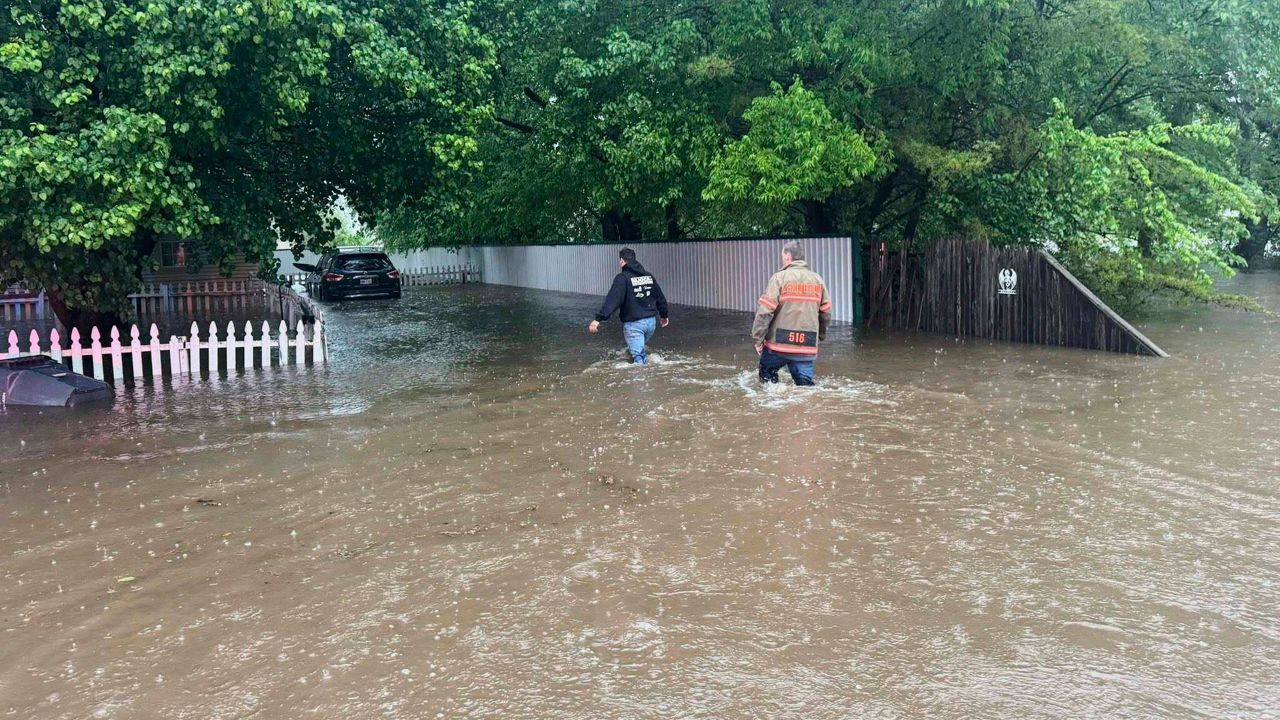The Biden administration on Thursday formally asked Congress to pass a short-term government funding measure with about a month left to go to avert a shutdown.
The extension, the White House said, would give lawmakers additional time to strike an accord on a more broad measure to fund the government while avoiding a Sept. 30 shutdown.
“Although the crucial work continues to reach a bipartisan, bicameral agreement on fiscal year 2024 appropriations bills, it is clear that a short-term continuing resolution (CR) will be needed next month,” a spokesperson for the Office of Management and Budget said in a statement to Spectrum News.
The White House also asked Congress to fund "anomalies," or special budget requests, in its short-term bill."
“As part of our responsibility to prudently plan for a short-term CR, OMB is providing Congress with technical assistance needed to avoid severe disruptions to government services in the first quarter of the fiscal year,” the OMB spokesperson added. “We urge Congress to include these anomalies along with the critical emergency supplemental needs the Administration transmitted earlier this month in any forthcoming CR, as they have done on a bipartisan basis many times in the past.”
Biden is requesting more than $44 billion in immediate funding, including more money for Ukraine, which some Republicans oppose, and $16 billion for disaster relief, which comes as a key Federal Emergency Management Agency fund is running low following higher than expected need. This year has already seen massive flooding in Vermont, devastating wildfires in Hawaii and now Hurricane Idalia, which has wreaked havoc across the southeast. And the Atlantic hurricane season still has roughly two months to go.
"Hopefully, Congress will act quickly and get a supplemental, just based on the number of hurricanes that are out there in the Atlantic and the Pacific right now," said Elizabeth Zimmerman, a former FEMA Associate Administrator and now Senior Executive Advisor at IEM, which works with government agencies and private sector organizations to improve disaster preparedness.
The agency has had to switch to what's known as Immediate Needs Funding, which prioritizes life-saving efforts over long-term recovery. Zimmerman said that "stops FEMA from obligating any additional funds for any permanent restoration," so things like road repair and wastewater treatment plants would fall to the wayside.
"The Disaster Relief Fund is there as a safety net to make sure that people's lives are saved, protected and people are safe and secure following any type of disaster and to be able to afford communities to keep operating for the next event," she added as she urged Congress to move quickly to approve the funding.
News of the request was first reported by The Washington Post. It comes amid negotiations between House and Senate lawmakers on government funding -- which Senate Minority Leader Mitch McConnell, R-Ky., described Wednesday as "a pretty big mess."
McConnell on Wednesday highlighted the accord between President Joe Biden and House Speaker Kevin McCarthy, R-Calif., to set spending caps for next year in exchange for raising the debt limit – “Which I supported,” he noted – before recounting that the Republican-controlled House went on to pass spending levels that were below the agreed-upon total.
“Without stating an opinion about that, that’s not gonna be replicated in the Senate,” McConnell added, before predicting that “we will end up” with a short-term measure to fund the government through December “as we struggle to figure out exactly what the government’s spending level is gonna be next year.”
Speaker McCarthy has floated a short-term stopgap funding measure to fund the government, telling Fox News this week that it would “make our argument stronger,” warning that “if we shut down, all of government shuts down,” including investigations that House Republicans are leading into President Joe Biden’s family and business dealings.
But some far-right House Republicans downplaying the threat of a shutdown, with some even embracing it as a means of forcing Democrats and Senate Republicans to enact their priorities.
Speaking to Spectrum News, Texas Rep. Chip Roy, a member of the far-right House Freedom Caucus, said that he’s “not gonna cry tears” if the government shuts down – though that’s not his goal, he added.
“I want to do our job,” Roy said. “If we shut down the government, I'm not going to cry tears, but I'm also not going to seek it, I want to actually try to fund a government to do its job. That's the whole goal.”
Fellow HFC members seemed to take similar stances.
“If a shutdown occurs, then so be it if they’re not gonna stick to what McCarthy agreed to, which is starting on a path of financial security, which we don’t have,” South Carolina Rep. Ralph Norman said in an interview with The Hill.
“Eighty-five percent or so of the government continues to operate, and most Americans won’t even miss it,” Virginia Rep. Bob Good told The Hill. “And if that’s the leverage that we need to utilize to force the Democrats to accept spending cuts and an end to the harmful policies that are, again, crushing the American people — I mean, then we need to do that.”
Earlier this month, the House Freedom Caucus released a letter saying its members will not support any spending measure unless it includes passage of their border security bill, as well as addressing what they called the “unprecedented weaponization of the Justice Department” and ending “the Left’s cancerous woke policies in the Pentagon.”
“Furthermore, we will oppose any attempts by Washington to evert to its old playbook of using a series of short-term funding extensions designed to push Congress up against a December deadline to force the passage of yet another monstruous, budget busting, pork filled lobbyist handout omnibus spending bill at year’s end” – referring to the $1.7 trillion full-year budget signed into law in December of last year, which was passed before Republicans reclaimed the House in January – “and we will use every procedural tool necessary to prevent that outcome.”
They also pledged to “oppose any blank check for Ukraine in any supplemental appropriations bill” – which could put them on a collision course with Senate Republicans and some moderates in the House GOP.
Those priorities have little-to-no chance of passing the Democratic-controlled Senate, to say nothing of winning President Joe Biden’s signature, setting up yet another showdown. McCarthy can only lose a handful of GOP votes on any legislation, and he risks pushback from far-right Republicans if he cuts a deal with Democrats -- which could lead to a loss of his speakership.
In addition to government funding, Congress is facing a reauthorization of the Federal Aviation Administration and the twice-per-decade Farm Bill before the end of the month.
With such a narrow majority – and with far-right members of his conference already having proved that they can paralyze the House floor – McCarthy has very little room for error.









